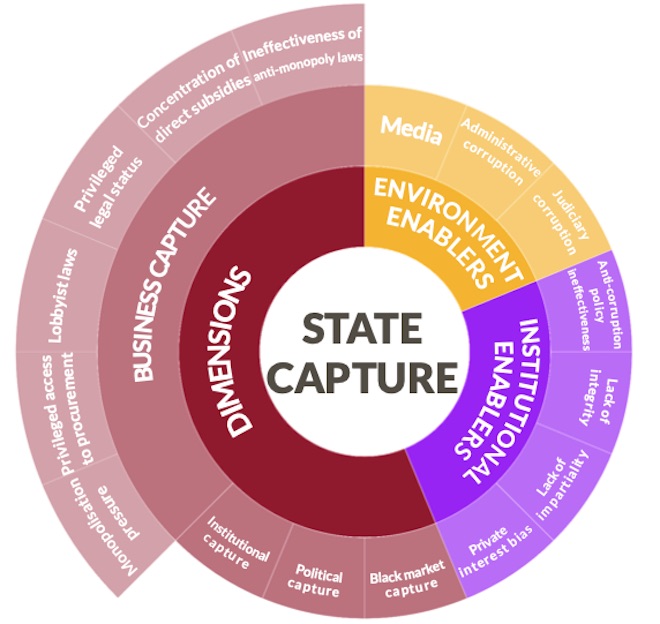Empowering EU against state capture through a new monitoring tool
SceMaps, a project supported by EC’s Internal Security Fund, will allow EU authorities to build evolving and risk-responsive instruments to tackle corruption and capture threats.
State capture is a combination of different forms of corruption which have a single objective: to secure wholesale and long-term privileges to captors by exploiting the power of government for private benefit. This phenomenon is a specific security risk for the EU. The European Commission (EC) recently published a communication on the need to further strengthen the rule of law in the EU Member States (MSs) aiming to improve its existing policy instruments. Nevertheless, there is a lack of proper prevention and detection tools in place to curb corruption effectively in its many forms and across the different jurisdictions in the EU. While state capture problems vary in substance and intensity among MSs, the negative impact of corruption is felt across the EU. As corrupt practices evolve, EU Member States need to respond by deepening their capacity to tackle new and more complex forms but also to better share existing knowledge.
To avoid some of the pitfalls of previous EC endeavours tackling corruption, State Capture Estimation and Monitoring of Anti-Corruption Policies at the Sectoral Level (SceMaps), a new multilateral project that provides an integrated risk assessment tool for estimating state capture and monitoring of anti-corruption, is born. SceMaps is funded by the European Union’s Internal Security Fund-Police and developed together by the Center for the Study of Democracy (Bulgaria), Expert Forum (Romania), Civio (Spain) and Università Degli Studi di Trento (Italy).
SceMaps will allow EU authorities to build evolving and risk-responsive instruments to assess and tackle corruption and state capture threats in regulatory heavy areas and industries. As a starting-point, the project will analyse the situation of three economic sectors vulnerable to this phenomenon: wholesale of fuels (solid, liquid and gas), wholesale of pharmaceuticals goods and construction. And it will cover four target countries: Bulgaria (a state subject to high regulatory and corruption obstacles for doing business, political interference in public administration and inefficient judiciary, as pointed out by State Capture Assessment Diagnostics by Stoyanov, A, A. Gerganov & T. Yalamov from Center for the Study of Democracy), Italy (critical issue of corruption, low efficiency of the criminal justice system and a vulnerable energy sector), Romania (government pressure on anti-corruption institutions; corruption, patronage and nepotism still hampering business) and Spain (no national corruption prevention strategy; no specific law focused on anti-corruption and no lobbying regulation).
SceMaps estimates and monitors state capture on sector level by assessing its results and effects. It focuses on business capture, through privileged access to procurement, lobbyist laws and monopolisation pressure, among others, and the necessary institutional enablers (e.g. lack of impartiality or integrity of public officials or decision-makers), and environment enablers, like administrative o judiciary corruption.

State Capture assessment diagnostics model (Stoyanov, A, A. Gerganov & T. Yalamov, 2019)
To do so, SceMaps will pioneer a three-dimensional approach for estimation and monitoring of state capture on sectoral level:
-
60 experts per sector per country will be surveyed about the effectiveness of regulatory and control institutions at national and sectoral level. Two institutional surveys per country to assess the effectiveness of the anti-corruption policies implementation to face the main risks within each institution.
-
Crosschecked analysis of companies and contracting entities with tendering data, such as contract award frequency or number of contracts per government term, to analyse procurement concentration and to detect signs of collusions.
-
“Red flagging” articles and media investigations on suspected state capture and corruption cases will provide context and extra information about suspicious companies and contracting entities.
SceMaps will also foster best practices implementation and data exchange for civil society oversight. The project has the potential to help the EU to respond to corruption by deepening its capacity to tackle new and more complex risks.
Upcoming project milestones:
-
September 2019: Release of SceMaps Mapping Report.
-
December 2019: Publicly accessible web-based platform with interactive analytics and company/institutional profiling (prototype).
-
January 2020: Knowledge-sharing roundtable with experts, policy and decision makers and business and business associations representatives (Brussels).
For further information
-
Todor Galev, Senior Researcher, Center for the Study of Democracy (Bulgaria): [email protected].
-
Daniela Mineva, Researcher, Center for the Study of Democracy (Bulgaria): [email protected].
